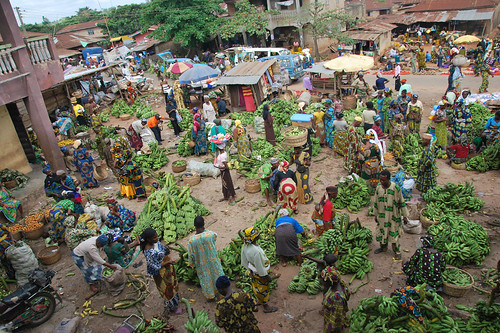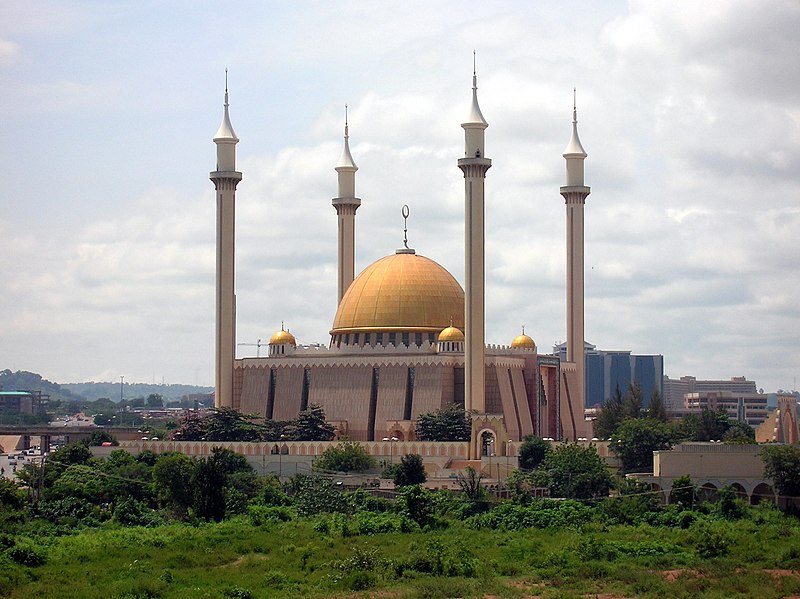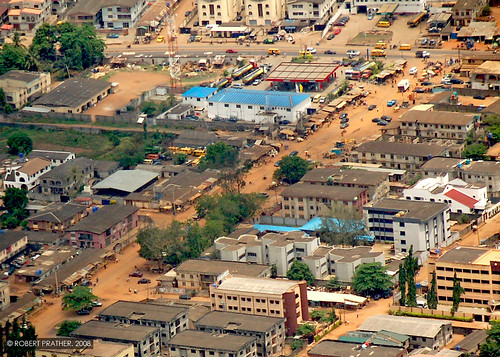Difference between revisions of "Adopting from Nigeria"
(→Who Can Be Adopted) |
(→Hague Convention Information) |
||
| (12 intermediate revisions by 2 users not shown) | |||
| Line 1: | Line 1: | ||
| − | {{#eimage:https://www.cia.gov/library/publications/the-world-factbook/graphics/flags/large/ni-lgflag.gif|410x579px|thumb|'''The official flag | + | {{#eimage:https://www.cia.gov/library/publications/the-world-factbook/graphics/flags/large/ni-lgflag.gif|410x579px|thumb|'''The official flag.'''<BR/>Source: cia.gov.}} |
| − | {{#eimage:https://www.cia.gov/library/publications/the-world-factbook/graphics/maps/ni-map.gif|410x579px|thumb|'''Map | + | {{#eimage:https://www.cia.gov/library/publications/the-world-factbook/graphics/maps/ni-map.gif|410x579px|thumb|'''Map.'''<BR/>Source: cia.gov.}} |
| − | {{#eimage:https://www.cia.gov/library/publications/the-world-factbook/graphics/locator/afr/ni_large_locator.gif|410x579px|thumb|'''Map | + | {{#eimage:https://www.cia.gov/library/publications/the-world-factbook/graphics/locator/afr/ni_large_locator.gif|410x579px|thumb|'''Map.'''<BR/>Source: cia.gov.}} |
| − | {{#eimage:http://upload.wikimedia.org/wikipedia/commons/thumb/c/c1/Durbar_5.jpg/800px-Durbar_5.jpg|410x579px|thumb|'''Bida durbar festival | + | {{#eimage:http://upload.wikimedia.org/wikipedia/commons/thumb/c/c1/Durbar_5.jpg/800px-Durbar_5.jpg|410x579px|thumb|'''Bida durbar festival.'''<BR/>Source: Wikipedia.org.}} |
| − | {{#eimage:http://upload.wikimedia.org/wikipedia/commons/thumb/7/74/A_woman_attends_a_health_education_session_in_northern_Nigeria_%288406369172%29.jpg/800px-A_woman_attends_a_health_education_session_in_northern_Nigeria_%288406369172%29.jpg|410x579px|thumb| | + | {{#eimage:http://upload.wikimedia.org/wikipedia/commons/thumb/7/74/A_woman_attends_a_health_education_session_in_northern_Nigeria_%288406369172%29.jpg/800px-A_woman_attends_a_health_education_session_in_northern_Nigeria_%288406369172%29.jpg|410x579px|thumb|<BR/>Source: Wikipedia.org.}} |
| − | {{#eimage: | + | {{#eimage:https://farm7.staticflickr.com/6205/6120856194_793842ac27.jpg|410x579px|thumb|''' A group of children.'''<BR/>Source: flickr.com.}} |
| − | {{#eimage:https:// | + | {{#eimage:https://farm7.staticflickr.com/6065/6126176975_9a2e3fb03b.jpg|410x579px|thumb|'''Banana and plantain market at Ikire, Osun.'''<BR/>Source: flickr.com.}} |
| − | {{#eimage: | + | {{#eimage:http://upload.wikimedia.org/wikipedia/commons/thumb/d/d4/AbujaNationalMosque.jpg/800px-AbujaNationalMosque.jpg|410x579px|thumb|'''Abuja National Mosque.'''<BR/>Source: Wikipedia.org.}} |
| − | {{#eimage: | + | {{#eimage:https://farm6.staticflickr.com/5258/5453878931_dac3c67892.jpg|410x579px|thumb|''''''<BR/>Source: flickr.com.}} |
| − | {{#eimage: | + | {{#eimage:https://farm3.staticflickr.com/2410/2363479089_f08f0f2033.jpg|410x579px|thumb|'''Aerial view of Lagos.'''<BR/>Source: flickr.com.}} |
| − | {{#eimage: | + | {{#eimage:http://upload.wikimedia.org/wikipedia/commons/b/bf/Ibadan_street_scene.jpg|410x579px|thumb|'''Market scene in Ibadan.'''<BR/>Source: Wikipedia.org.}} |
| + | {{#eimage:http://upload.wikimedia.org/wikipedia/commons/thumb/f/f5/Kanogate2.jpg/800px-Kanogate2.jpg|410x579px|thumb|''' New Gate to the palace of the Emir of Zaria.'''<BR/>Source: Wikipedia.org.}} | ||
| + | {{#eimage:https://farm6.staticflickr.com/5135/5453878905_8322546316.jpg|410x579px|thumb|'''A mother and her newborn premature baby.'''<BR/>Source: flickr.com.}} | ||
| − | |||
| − | + | '''Notice: As of July 14, 2014, all individuals and agencies facilitating [[international]] adoptions must be in compliance with the Intercountry [[Universal Accreditation Act]].''' | |
| − | + | The information contained on this website is for educational purposes only and is not intended to be a substitute for professional legal advice. Always seek the advice of a licensed and qualified professional. While the content of this website is frequently updated, information changes rapidly and therefore, some information may be out of date, and/or contain inaccuracies, omissions or typographical errors. | |
| − | + | =About Nigeria= | |
| + | British influence and control over what would become [[Nigeria]] and Africa's most populous country grew through the 19th century. A series of constitutions after World War II granted [[Nigeria]] greater autonomy; independence came in 1960. Following nearly 16 years of military rule, a new constitution was [[adopted]] in 1999, and a peaceful transition to civilian government was completed. The government continues to face the daunting task of reforming a petroleum-based economy, whose revenues have been squandered through corruption and mismanagement, and institutionalizing democracy. To learn more please read [[About Nigeria]]. | ||
| − | |||
| + | =Nigeria Adoption Alert= | ||
| − | + | There have been multiple [[adoption]] alerts over the years for [[Nigeria]]. To learn more please read the [[Nigeria Adoption Alert]] page. | |
| − | + | ||
| − | + | ||
| − | + | ||
| − | + | ||
| − | + | ||
| − | + | ||
| − | + | ||
| − | + | ||
| − | + | ||
| − | + | ||
| − | + | ||
| − | + | ||
| − | + | ||
| − | + | ||
| − | + | ||
| − | + | ||
=Hague Convention Information= | =Hague Convention Information= | ||
| − | Nigeria is not party to the Hague Convention on Protection of Children and Co-operation in Respect of Intercountry Adoption (Hague Adoption Convention). Intercountry adoptions of children from non-Hague countries are processed in accordance with 8 Code of Federal Regulations, Section 204.3 as it relates to orphans as defined under the Immigration and Nationality Act, Section 101(b)(1)(F | + | [[Nigeria]] is not party to the Hague Convention on Protection of Children and Co-operation in Respect of Intercountry [[Adoption]] ([http://adoption.state.gov/hague_convention/overview.php Hague Adoption Convention]). Intercountry adoptions of children from non-Hague countries are processed in accordance with [http://www.ecfr.gov/cgi-bin/text-idx?c=ecfr&rgn=div5&view=text&node=8:1.0.1.2.8&idno=8#8:1.0.1.2.8.1.1.3 8 Code of Federal Regulations, Section 204.3] as it relates to orphans as defined under the [https://www.uscis.gov/ Immigration and Nationality Act, Section 101(b)(1)(F]. To learn more please read about [[Nigeria and the Hague Convention]]. |
| − | + | ||
| − | + | ||
| − | + | ||
| − | + | ||
| − | + | ||
| − | + | ||
| − | + | ||
| − | + | ||
| − | + | ||
| − | + | ||
| − | + | ||
| − | + | ||
| − | + | ||
| − | + | ||
| − | + | ||
| − | + | ||
| − | + | ||
| − | + | ||
| − | + | ||
| − | + | ||
| − | + | ||
=Who Can Adopt= | =Who Can Adopt= | ||
| − | In addition to U.S. immigration requirements, you must also meet | + | In addition to U.S. immigration requirements, you must also meet multiple requirements in order to [[adopt]] a child from [[Nigeria]]. To learn more about these requirements please read [[Who Can Adopt from Nigeria]]. |
| − | |||
| − | + | =Who Can Be Adopted= | |
| − | + | In addition to U.S. immigration requirements, [[Nigeria]] has specific requirements that a child must meet in order to be eligible for [[adoption]]. To learn more about these requirements please read [[Who Can Be Adopted from Nigeria]]. | |
| + | |||
| − | + | =How to Adopt= | |
| − | == | + | ==Adoption Authority== |
| − | + | '''[[Nigeria]]’s [[Adoption]] Authority''' | |
| + | |||
| + | The Magistrate Court (from the state where the child resides) | ||
| − | |||
| − | + | ==The Process== | |
| − | + | The process for adopting a child from [[Nigeria]] generally includes the following steps: | |
| − | |||
| − | + | # Choose an [[Adoption Service Provider|adoption service provider]] | |
| + | # Apply to be found eligible to [[adopt]] | ||
| + | # Be matched with a child | ||
| + | # [[Adopt]] (or gain [[custody]] of) the child in [[Nigeria]] | ||
| + | # Apply for the child to be found eligible for orphan status | ||
| + | # Bring your child home | ||
| − | + | To learn more about this process please read [[How to Adopt from Nigeria]]. | |
| − | + | ||
| − | |||
| − | + | =Traveling Abroad= | |
| − | ''' | + | '''Applying for Your U.S. Passport''' |
| − | + | A valid U.S. passport is required to enter and leave [[Nigeria]]. Only the U.S. Department of State has the authority to grant, issue, or verify U.S. passports. Getting or renewing a passport is easy. To learn more please read about [[Traveling Abroad in Nigeria]]. | |
| − | |||
| − | + | =After Adoption= | |
| − | ''' | + | '''What resources are available to assist families after the [[adoption]]?''' |
| − | + | Many [[Adoptive Parents|adoptive parents]] find it important to find support after the [[adoption]]. Take advantage of all the resources available to your family -- whether it's another adoptive family, a support group, an advocacy organization, or your religious or community services. | |
| − | + | Here are some good places to start your support group search: | |
| − | |||
| − | + | [https://www.childwelfare.gov/pubs/f_postadoption.cfm Child Welfare Information Gateway] | |
| − | + | [http://www.nacac.org/ North American Council on Adoptable Children] | |
| − | + | [http://www.adoptionservices.org/adoption_support_groups_family/index.htm Adoption Services Support Group for Adopting Persons] | |
| − | + | =Contact Information= | |
| − | + | '''U.S. Consulate General, Lagos''' | |
| + | 2 Walter Carrington Crescent | ||
| + | Victoria Island, Lagos | ||
| + | [[Nigeria]] | ||
| + | Tel: [234](1) 460-3400 | ||
| + | Email: LagosIV@state.gov | ||
| − | |||
| − | + | '''U.S. Embassy in [[Nigeria]]''' | |
| + | Abuja, [[Nigeria]] | ||
| + | Plot 1075 Diplomatic Drive | ||
| + | Central Business District, Abuja, FCT | ||
| + | (Off Independence Avenue/Near the Ministry of Defense) | ||
| + | Tel: [234] (9)461-4262 | ||
| + | Fax: [234] (9)461-4171 | ||
| + | Email: Consularabuja@state.gov | ||
| + | Website: [http://nigeria.usembassy.gov U.S. Embassy Nigeria] | ||
| − | |||
| − | + | '''[[Nigeria]]’s [[Adoption]] Authority''' | |
| − | + | Magistrate Court (where child resides) | |
| + | Embassy of the Republic of [[Nigeria]] | ||
| + | 3519 [[International]] Court, N.W. | ||
| + | [[Washington]], DC 20008 | ||
| + | Tel: (202) 775-8400 | ||
| + | Fax: (202) 775-1385 | ||
| + | Internet: [http://nigeriaembassyusa.org Nigeria Adoption Authority] | ||
| − | + | ||
| + | [[Nigeria]] also has consulates in Atlanta and [[New York]] City. | ||
| − | |||
| + | '''Office of Children’s Issues''' | ||
| − | + | U.S. Department of State | |
| + | CA/OCS/CI | ||
| + | SA-17, 9th Floor | ||
| + | [[Washington]], DC 20522-1709 | ||
| + | Tel: 1-888-407-4747 | ||
| + | Email: AskCI@state.gov | ||
| + | Internet: [http://adoption.state.gov U.S. Department of State] | ||
| − | + | '''U.S. Citizenship and Immigration Services (USCIS)''' | |
| − | + | ||
| − | + | ||
| − | + | ||
| − | + | ||
| + | For questions about immigration procedures: | ||
| + | National Customer Service Center (NCSC) | ||
| + | Tel: 1-800-375-5283 (TTY 1-800-767-1833) | ||
| + | Internet: [http://uscis.gov USCIS] | ||
| + | For questions about filing a Form [[I-600A]] or [[I-600]] petition: | ||
| + | National Benefits Center | ||
| + | Tel: 1-877-424-8374 (toll free); 1-816-251-2770 (local) | ||
| + | Email: NBC.Adoptions@DHS.gov | ||
==SOURCE== | ==SOURCE== | ||
| − | '''Intercountry [[Adoption]], Bureau of Consular Affairs. U.S. Department of State Country Information''' | + | '''Intercountry [[Adoption]], Bureau of Consular Affairs. U.S. Department of State Country Information''' [[adoption]].state.gov/country_information/country_specific_info.php?country-select=[[nigeria]] |
[[Category: International Adoption]] | [[Category: International Adoption]] | ||
Latest revision as of 14:13, 16 June 2021
Notice: As of July 14, 2014, all individuals and agencies facilitating international adoptions must be in compliance with the Intercountry Universal Accreditation Act.
The information contained on this website is for educational purposes only and is not intended to be a substitute for professional legal advice. Always seek the advice of a licensed and qualified professional. While the content of this website is frequently updated, information changes rapidly and therefore, some information may be out of date, and/or contain inaccuracies, omissions or typographical errors.
Contents
About Nigeria
British influence and control over what would become Nigeria and Africa's most populous country grew through the 19th century. A series of constitutions after World War II granted Nigeria greater autonomy; independence came in 1960. Following nearly 16 years of military rule, a new constitution was adopted in 1999, and a peaceful transition to civilian government was completed. The government continues to face the daunting task of reforming a petroleum-based economy, whose revenues have been squandered through corruption and mismanagement, and institutionalizing democracy. To learn more please read About Nigeria.
Nigeria Adoption Alert
There have been multiple adoption alerts over the years for Nigeria. To learn more please read the Nigeria Adoption Alert page.
Hague Convention Information
Nigeria is not party to the Hague Convention on Protection of Children and Co-operation in Respect of Intercountry Adoption (Hague Adoption Convention). Intercountry adoptions of children from non-Hague countries are processed in accordance with 8 Code of Federal Regulations, Section 204.3 as it relates to orphans as defined under the Immigration and Nationality Act, Section 101(b)(1)(F. To learn more please read about Nigeria and the Hague Convention.
Who Can Adopt
In addition to U.S. immigration requirements, you must also meet multiple requirements in order to adopt a child from Nigeria. To learn more about these requirements please read Who Can Adopt from Nigeria.
Who Can Be Adopted
In addition to U.S. immigration requirements, Nigeria has specific requirements that a child must meet in order to be eligible for adoption. To learn more about these requirements please read Who Can Be Adopted from Nigeria.
How to Adopt
Adoption Authority
The Magistrate Court (from the state where the child resides)
The Process
The process for adopting a child from Nigeria generally includes the following steps:
- Choose an adoption service provider
- Apply to be found eligible to adopt
- Be matched with a child
- Adopt (or gain custody of) the child in Nigeria
- Apply for the child to be found eligible for orphan status
- Bring your child home
To learn more about this process please read How to Adopt from Nigeria.
Traveling Abroad
Applying for Your U.S. Passport
A valid U.S. passport is required to enter and leave Nigeria. Only the U.S. Department of State has the authority to grant, issue, or verify U.S. passports. Getting or renewing a passport is easy. To learn more please read about Traveling Abroad in Nigeria.
After Adoption
What resources are available to assist families after the adoption?
Many adoptive parents find it important to find support after the adoption. Take advantage of all the resources available to your family -- whether it's another adoptive family, a support group, an advocacy organization, or your religious or community services.
Here are some good places to start your support group search:
Child Welfare Information Gateway
North American Council on Adoptable Children
Adoption Services Support Group for Adopting Persons
Contact Information
U.S. Consulate General, Lagos
2 Walter Carrington Crescent Victoria Island, Lagos Nigeria Tel: [234](1) 460-3400 Email: LagosIV@state.gov
U.S. Embassy in Nigeria
Abuja, Nigeria Plot 1075 Diplomatic Drive Central Business District, Abuja, FCT (Off Independence Avenue/Near the Ministry of Defense) Tel: [234] (9)461-4262 Fax: [234] (9)461-4171 Email: Consularabuja@state.gov Website: U.S. Embassy Nigeria
Magistrate Court (where child resides) Embassy of the Republic of Nigeria 3519 International Court, N.W. Washington, DC 20008 Tel: (202) 775-8400 Fax: (202) 775-1385 Internet: Nigeria Adoption Authority
Nigeria also has consulates in Atlanta and New York City.
Office of Children’s Issues
U.S. Department of State CA/OCS/CI SA-17, 9th Floor Washington, DC 20522-1709 Tel: 1-888-407-4747 Email: AskCI@state.gov Internet: U.S. Department of State
U.S. Citizenship and Immigration Services (USCIS)
For questions about immigration procedures: National Customer Service Center (NCSC) Tel: 1-800-375-5283 (TTY 1-800-767-1833) Internet: USCIS
For questions about filing a Form I-600A or I-600 petition:
National Benefits Center
Tel: 1-877-424-8374 (toll free); 1-816-251-2770 (local)
Email: NBC.Adoptions@DHS.gov
SOURCE
Intercountry Adoption, Bureau of Consular Affairs. U.S. Department of State Country Information adoption.state.gov/country_information/country_specific_info.php?country-select=nigeria












